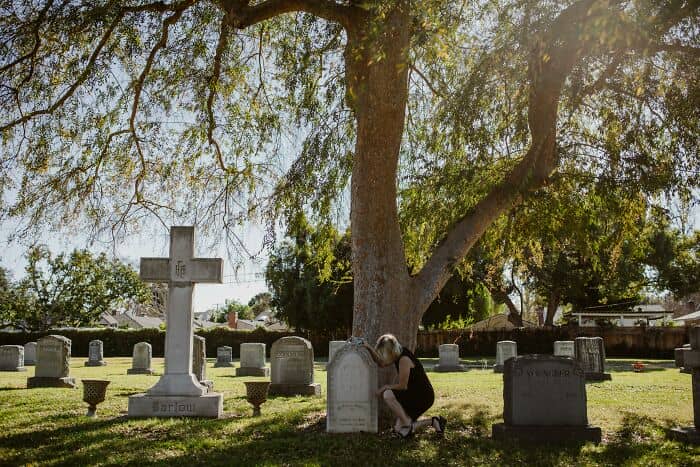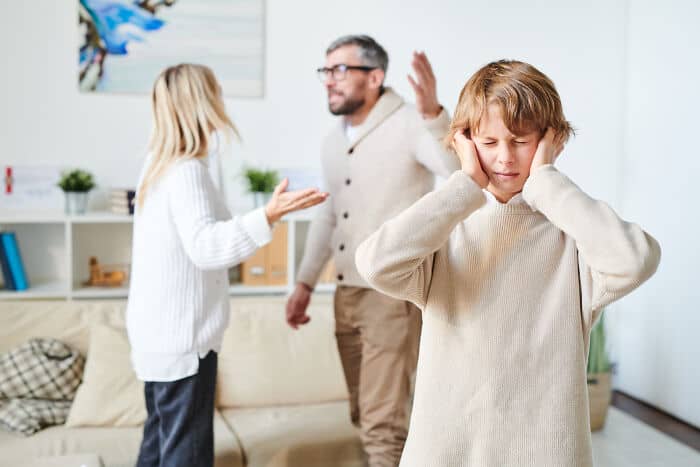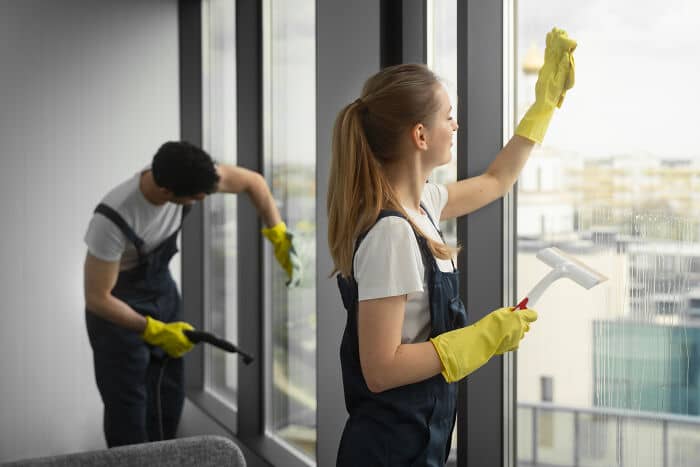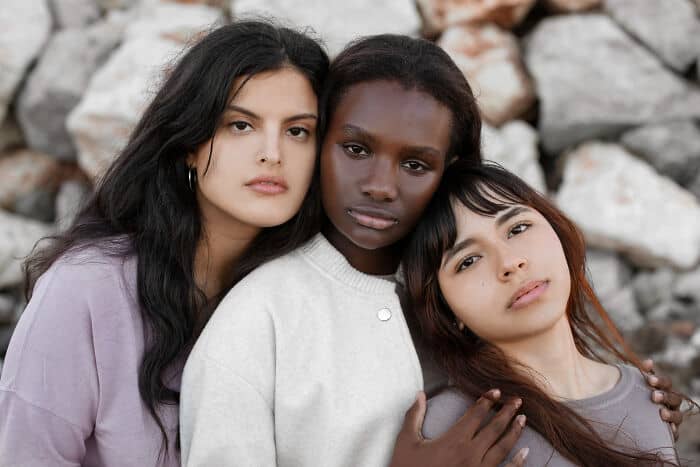Have you ever met someone who seemed to be kind of unprepared for the life of an adult? Maybe they struggle with certain social skills, are a little naive, or something else that you can find mentioned in today’s list.
Well, turns out it might stem from a person’s childhood. To be more specific, it might be a sign that they had a pretty sheltered one, which “forces” them to exhibit these quirks. And while it can sometimes be a tad endearing, in other cases it’s pretty troubling. Read up and decide which sign is which!
More info: Reddit

#1

As someone who actually grew up sheltered.
My answer is having no social skills or any real life experience.
I am still trying to undo the damage of growing up the way I have has done to me, and I am 26. Don’t shelter your children.
#2

I s**t you not I went to high school with a girl who thought people only died in movies. Her parents wanted her to “stay their little girl” as long as they could. We had a say no to d***s showing and she passed out.
#3

Have a friend ive known for 25 years, he has an insane helicopter mom
> refuses to eat anything that isn’t a plain, well done burger
>has never traveled, explored hobbies outside of games, interacted with women.
>very socially stunted because he has no passions or experinces to draw from
>deathly afraid to try anything new, especially foods. Very inconvenient
>still working minimum wage at 33 because mother doesn’t let him take a manager job
>strict curfew at 33
> very poorly dressed.
It’s programmed into most parents to be protective of their children. After all, it’s their youngling—it’s their offspring; they are responsible for their well-being in this world. Yet, some parents take it too far and become overprotective.
Overprotective parents often go beyond necessary measures to shield their children from various things, such as harm, failure, or disappointment. It is explained that overprotectiveness stems from the fear of these aforementioned things and the unknown, and from personal experiences.
#4

Once they’re exposed to the things they were sheltered from (the opposite s*x, d***s, alcohol), they go completely off the rails overindulging in it.
#5

They think that if they lost at something (like an election) then the other person must have cheated.
#6

They have little to no social life because they weren’t allowed to go outside and play with friends growing up.
source: me. Most of my childhood was spent in front of a television or reading books.
Some folks tend to call them helicopter parents. The term was coined back in 1990 by child development researchers Foster Cline and Jim Fay to describe a parent who “hovers over a child like a helicopter.”
Either way, helicopter parenting often leads to the kids growing up sheltered. Basically, a kid is raised in continuous comfort and security, which is nice while they’re growing up, but becomes rather a problem when they’re an adult. That’s because such a cozy environment doesn’t prepare them for the various difficulties grown-ups have to deal with and it stunts their social skills.
#7

A colleague once told me, very seriously, that there is no such thing as a bad parent.
#8

They have strong opinions yet they can’t explain why they have them.
#9

Have made no mistakes to learn from,
Assume all of their knowledge is all of everyone’s knowledge and that the sources are legitimate.
Does this make you wonder whether you grew up sheltered? Or maybe whether you ever met people who grew up like this? Well, here’s where today’s listicle comes to help. In it, you will find a plethora of signs that someone grew up sheltered.
Granted, these aren’t official criteria made by psychologists or other specialists, only the things netizens who answered the question on Reddit “What are clear signs that someone grew up sheltered?” have noticed throughout their lives, so take it with a grain of salt.
#10

They get a little nervous when a show or movie for adults comes on. In my experience a lot of these types of people were never allowed to watch anything rated PG-13 or higher and they subconsciously still fear getting in trouble over it.
#11
Guy I knew in college grew up very wealthy, where even his parents were even living high on the hog off their parents earnings. None of them worked a day in their lives as their earnings were all passive. Anyway, he couldn’t feed himself. Literally starved for several days before he was taught about the cafeteria. He always just had food brought to him by servants at the appropriate times and when it didn’t appear he didn’t know what to do. He was also just generally clueless about life and living, no independence bone in his body.
#12

Never locking the doors of their house.
I know someone who grew up in a very sheltered little suburb, what you might call a bubble. They now live in a somewhat dodgy area, but half the time they don’t even bother locking their doors. I don’t understand why… It’s such a tiny amount of effort, and it could save you a lot of trauma, your possessions, and possibly your life.
Okay, now that we’ve figured out what signifies a sheltered person, how can one get rid of the consequences of such a childhood? Well, as it usually goes with problems that stem from a person’s psyche, therapy is the best way to go about it.
A professional can provide a safe space for a person to unpack everything, from emotions to experiences, and can help them figure out a way to work through the struggles it causes. For instance, they can help identify behavior patterns that turn into unhealthy coping mechanisms and turn them into healthier ones. You get the gist.
#13
When they tell you something that is common knowledge as if it’s some obscure fact because they just learned it.
My roommate seems to have never been taught how to clean as a kid. Like, he’s not lazy or a jerk. He just legitimately *does not know* how to recognize when something needs cleaning or how to go about cleaning it. When he’s trying to be helpful, he still asks me pretty much exactly what he should do because he can’t just look at something, recognize it needs doing, and do it.
Anyway, he’s been trying to be more independent and pro-active, and the other day he was like “so it turns out that because bathrooms get wet, the dust that accumulates in them kinda gets matted down, and then you have to really scrub or wipe it down in order to get rid of it.” He was telling me this like it’s a little-known fact or some kind of revelation. I don’t want to make anybody feel stupid for learning new things, so I was just kinda like “oh yeah, that’s a good observation.”.
#14

My husband bless his heart one of the most intelligent person I know, grew up middle class, and thought if you missed the due date on a utility bill they shut it off the next day. He had no idea they don’t shut off the day it’s due and that you could go in person at a cash checking place and pay part of it and that if they do shut it off because you so late, you get charged a reconnection fee. He was appalled by all of that.
#15

-acting like manual labor workers are “dumb”
-complaining about waiters, tipping poorly and making comments like “well, they should have gone to college”
-general lack of empathy and an overstated feeling of righteousness.
Besides therapy, there are several other things that can be done. Here, on this Reddit thread, cybercitizens give plenty of options.
Volunteering can help one develop social skills, meet people, and give back to the community. Or, reading specific books on the topic. These are just a few examples – it all depends on exactly what a person lacks and what they want to work on. The good news is that it’s all doable.
Have you ever met someone who grew up sheltered? Or maybe you were the one? If you don’t mind, open up about your experiences with us in the comments!
#16

They act shocked about consequences, literally shocked.
They are baffled when people don’t want to do stuff for them. They truly think others should be completely onboard for catering to them.
They constantly seek out someone to fight their battles. .
#17

Entitlement and can barely function as independent adults. They can usually manage their own hygiene, but can’t cook, clean, do laundry, do taxes, figure out a budget or menu for the week etc.
It’s even worse if they expect their romantic partners to make up the difference – that’s not a partner, that’s a surrogate parent.
#18

They think just call the police solves everything. Like ma’am… this isn’t a Hallmark movie.
#19

Inability to admit to being a nepo baby.
Imo there’s actually nothing wrong with that and it doesn’t mean nepo babies can’t work hard and have their efforts recognized. If I were really wealthy and decided to have kids I would absolutely provide them with as many tools to become as successful, well rounded adults as possible. But it grinds my gears when someone refuses to admit how much easier it was to get to where they are because they were given better opportunities.
My SO and I had an ex-friend who is a recently graduated and board certified dentist and works full time at his parents’ clinic… both of whom are also dentists. He is an only child, only ever went to private school in Canada, studied at NYU for undergrad and dental school, but never had to work to afford tuition AND had a healthy allowance from parents as an adult. The only work experience he ever had was dental admin work for his parents during the summers in between. One time he told us that one time a patient of his called him a nepo baby and it really upset him because he “worked really hard”. Seriously??
#20

Seeing someone’s way of life that’s different from yours and automatically deeming it as weird or assuming stereotypes.
#21

Primordial sense of humor. Easily impressed and shocked.
#22

Saying they don’t do something because their parents wouldn’t approve, even though they’re an adult.
Worrying about how their parents will react to them doing normal things adults do, like having a cocktail or driving at night.
Being shocked by other people doing normal things adults do, like cursing or mentioning that they’re queer.
Not knowing any bands or artists that aren’t Christian.
#23

Automatically believing everyone you meet is benevolent and has good intentions.
#24
They are scared of a lot of people who are not like them, they call other situations weird, because of their unworldliness. Every Mormon woman I have met act like this when they come across marginilized people, urban people, or gay people. They act all scared and s**t.
#25

– Having very little desire to travel to anywhere they haven’t already been
– thinking the nearest city is dangerous, no matter what, and a deep distrust of teachers, doctors or other professionals (except cops)
– either really /really/ clueless about money or hyper vigilant about how they spend their money, in ways that show that they aren’t used to earning their own money
– crash out HARD freshman year of college when they have a taste of freedom/have to manage their own time & routines.
#26

They don’t know how to clean anything.
#27

Inability to handle emotional discomfort and/or uncertainty.
#28
They’re completely helpless and can’t do basic things. My friend’s adult ex couldn’t do laundry or even make a sandwich because his mommy did everything for him.
#29

Sheltered people often seem naive, unaware of real world struggles like money or jobs, and shocked by adult topics.
They avoid conflict, trust too easily, and lack basic life skills.
Overprotected, they rely on parents, crumble under stress, and struggle with independence, needing experience to adapt.
#30

They think institutions run on the values they claim instead of power, PR, optics, money, etc.
#31

I met a 23 year old woman who lived in Miami her whole life and she said Panera Bread was her favorite place to eat down there.
#32

Not being allowed to do certain activities like sports, riding a bike, skateboarding etc because their parents were afraid of them getting hurt.
#33
Believing that ‘the city’ is dangerous despite never experiencing crime or knowing anyone who has experienced crime in the city.
#34

Too trusting of others. Making decisions on emotions instead of facts. Emotionally immature. Falls for sales pitches and overspends.
#35

Either very trusting of people or distrusts anyone who is different (race, religion, ethnicity, nationality, etc.).
#36
Never traveled on public transit.